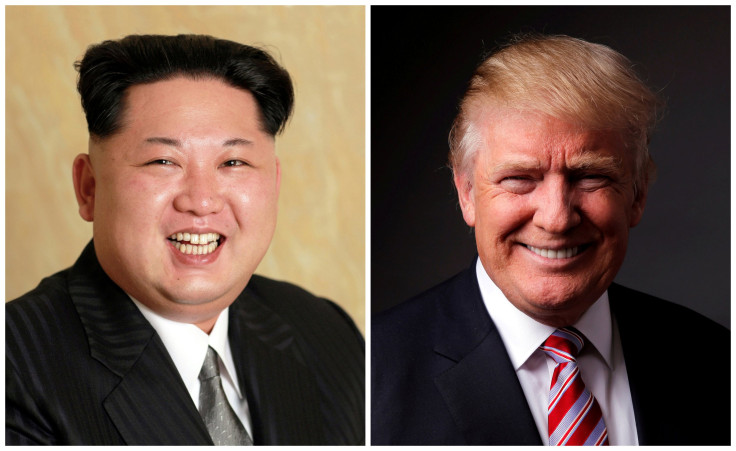Will The US Bomb North Korea? Japanese Government Says Possibility Is Increasingly Realistic

Just as North Korean state media reportedly signaled that it would launch a nuclear attack on the U.S. at the first sign of American aggression against the isolated nation, Japanese officials appeared to suggest the American military might do just that, Japan's Kyodo news agency reported, citing unnamed “diplomatic sources.”
Coming just days after the wrap-up of a meeting between President Donald Trump and his Chinese counterpart Xi Jinping at the former’s Mar-a-Lago estate in Palm Beach, Florida, the report said that, absent pressure on North Korea from neighboring China, the U.S. would strike Pyongyang, something the newswire’s source said had become a realistic possibility.
Read: US Attack On North Korea Unlikely, Seoul Says
Trump himself did not do much to relieve the tension, tweeting Tuesday that “North Korea is looking for trouble” and that if China chose not to “solve the North Korean problem,” the U.S. would “solve the problem without them!”
His tweets might not have held much sway had he not ordered unilateral air strikes on a Syrian military airfield Thursday, a direct confrontation with the government of Syrian President Bashar Assad and a response to the Syrian leader’s use of chemical weapons against his own people. And the state-run Korean Central News Agency said Tuesday that North Korean leader Kim Jong-Un had received a note from Assad offering commiseration and affirming their relationship.
"The friendly two countries [Syria and North Korea] are… conducting a war against big powers' wild ambition to subject all countries to their expansionist and dominationist policy and deprive them of their rights to self-determination," the message reportedly read.
Read: US Orders Aircraft Carrier Closer To Korean Peninsula
Despite a South Korean official’s dismissal of the notion that a direct conflict between Washington and Pyongyang was imminent, movements by U.S. naval vessels appeared to give the opposite impression, when the USS Carl Vinson aircraft carrier and its associated group of warships abruptly headed toward the Korean Peninsula Sunday, abandoning a planned trip toward Australia.
A spokesman for U.S. Pacific Command characterized the change of plans as “a prudent measure to maintain readiness and presence in the Western Pacific,” as “the number one threat in the region continues to be North Korea, due to its reckless, irresponsible and destabilizing program of missile tests and pursuit of a nuclear weapons capability.”
© Copyright IBTimes 2024. All rights reserved.






















